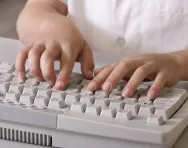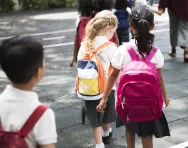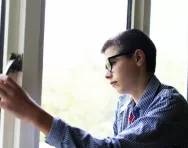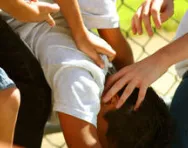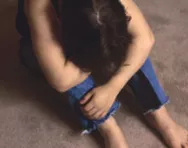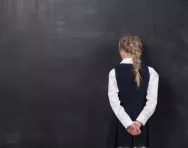Important update from TheSchoolRun
For the past 13 years, TheSchoolRun has been run by a small team of mums working from home, dedicated to providing quality educational resources to primary school parents. Unfortunately, rising supplier costs and falling revenue have made it impossible for us to continue operating, and we’ve had to make the difficult decision to close. The good news: We’ve arranged for another educational provider to take over many of our resources. These will be hosted on a new portal, where the content will be updated and expanded to support your child’s learning.
What this means for subscribers:
- Your subscription is still active, and for now, you can keep using the website as normal — just log in with your usual details to access all our articles and resources*.
- In a few months, all resources will move to the new portal. You’ll continue to have access there until your subscription ends. We’ll send you full details nearer the time.
- As a thank you for your support, we’ll also be sending you 16 primary school eBooks (worth £108.84) to download and keep.
A few changes to be aware of:
- The Learning Journey weekly email has ended, but your child’s plan will still be updated on your dashboard each Monday. Just log in to see the recommended worksheets.
- The 11+ weekly emails have now ended. We sent you all the remaining emails in the series at the end of March — please check your inbox (and spam folder) if you haven’t seen them. You can also follow the full programme here: 11+ Learning Journey.
If you have any questions, please contact us at [email protected]. Thank you for being part of our journey it’s been a privilege to support your family’s learning.
*If you need to reset your password, it will still work as usual. Please check your spam folder if the reset email doesn’t appear in your inbox.
School social media policies explained

Nativity plays, sports days, class assemblies... Many of your proudest parenting moments take place within the school walls, and it's natural to want to share your photos and videos on Facebook, Twitter and Instagram. It's also natural to use social media to vent if you're having a problem with your child's school life.
But the internet is not always a safe or private place, and 'oversharing' could potentially put your child and others at risk.


Boost Your Child's English & Maths!
- Weekly programme for each school year
- Worksheets sent direct to your inbox
- Keeps your child's learning on track
That's why an increasing number of schools are introducing social media policies that dictate how staff, parents and pupils should use social networking sites.
What are social media policies for?
Primary school social media policies have a number of purposes, but their overriding function is to protect staff, students and parents from the many issues that can arise as a result of posting on social networking sites.
Staff may be vulnerable to malicious and defamatory comments (and potentially even threats and abuse) from parents or pupils, and to allegations of grooming and other forms of online abuse. Twenty one per cent of teachers say they've had derogatory remarks made about them online.
Parents may become involved in online disputes with other parents through social media. They may also potentially put their child and others within the school at risk by sharing photos, videos or other information that could make the children identifiable to others.
Pupils are at risk of cyber bullying, and may also become involved in cyber bullying themselves. They are also vulnerable to other serious crimes such as grooming and abduction if they share too much personal information on social media.
Do schools have to have a social media policy?
Schools aren't required by law to have a social media policy. They are required to have other types of policy, which may incorporate regulations about the use of social media.
These include the home-school agreement, school behaviour policy and data protection policy.
However, because of the growing popularity of social media and the corresponding increase in potential issues surrounding its use, a large number of schools now set out their guidelines in a separate written policy.
If your child's school has a social media policy, it should be available for parents to view on the school website or by contacting the office.
What do social media policies include?
The main aim of school social media policies is to keep everyone within the school safe and within the law. Because the policies aren't mandatory, schools are free to decide what they include. Often, the policies are divided into three separate sections directed at staff, parents and pupils.
For staff, requirements typically include:
- Not accepting friend requests from current pupils, or ex-pupils under the age of 13
- Notifying the parents if a child sends a friend request
- Using extreme caution when corresponding with parents via social media, and preferably using a school email address instead
- Not discussing anything to do with school, pupils or other staff members, or posting photos of school events
- Only posting things that they would be happy to be attributed to them as a teaching professional
- Not identifying themselves as being associated with the school
- Using the tightest privacy settings possible
- Not using social media on school devices, or on personal devices while on the school premises
Parental requirements often include:
- Not posting photos, videos or comments that include other children at the school
- Not using social media on their own devices while on school premises
- Not accessing social media while helping at school or on school visits
- Raising queries, concerns and complaints directly with the school rather than posting them on social media – whether on their own pages, in closed groups (e.g. groups set up for school parents to communicate with each other) or on the school's pages
- Not posting anything malicious about the school or any member of the school community
Children are typically required to:
- Not join any social networking sites if they are below the permitted age (13 for most sites including Facebook and Instagram)
- Tell their parents if they are using the sites, and when they are online
- Be aware how to report abuse and inappropriate content
- Not access social media on school devices, or on their own devices while they're at school
- Not make inappropriate comments (including in private messages) about the school, teachers or other children
How are social media policies enforced?
Social media policies aren't legally enforceable, but schools can take their own action if a member of staff, parent or pupil breaches its policy. A child who breaks the rules is likely to be disciplined according to the school's normal behaviour policies (such as through the anti-bullying policy, if they're found to be involved in cyber bullying).
Schools will also take social media infringements by teachers seriously. If, for example, a teacher is found to have been making inappropriate contact with a pupil on social media, they're likely to face internal disciplinary action, and in extreme cases – such as if a teacher is suspected of making sexual advances to a minor via social media – the police can be involved.
As far as parents are concerned, infringing a rule such as posting photos including other pupils is likely to mean that you're contacted by the school and asked to remove the content. If parents continue to break the rules, schools may ultimately ban cameras, phones and videos from school events. This may seem an extreme move – especially if you know that the parents of other children in your child's class are happy to have photos posted on Facebook – but in some cases, identifying a child who is the subject of safeguarding (e.g. a child who has been adopted or fostered, or who has an injunction against a family member) could put them at risk. This means it's essential that schools uphold their policies through whatever means possible.
If a parent is accused of making malicious comments about the school or a teacher on social media, the government advises that the parent should be invited to a meeting with the school. If the parent has a reasonable complaint, this should be addressed through the usual complaints procedure – but the school can request that the offensive comments are removed. If the parent refuses, the school can escalate the matter by reporting it to the social networking site or the local authority, or can seek legal advice. Comments that are threatening, abusive, racist, sexist or that could be seen as a hate crime can be reported to the police as online harassment.
For more advice on helping your child stay safe online, visit the UK Safer Internet Centre.
